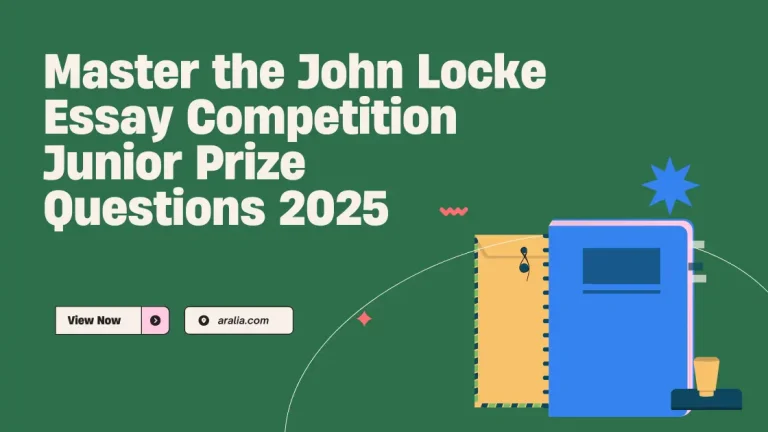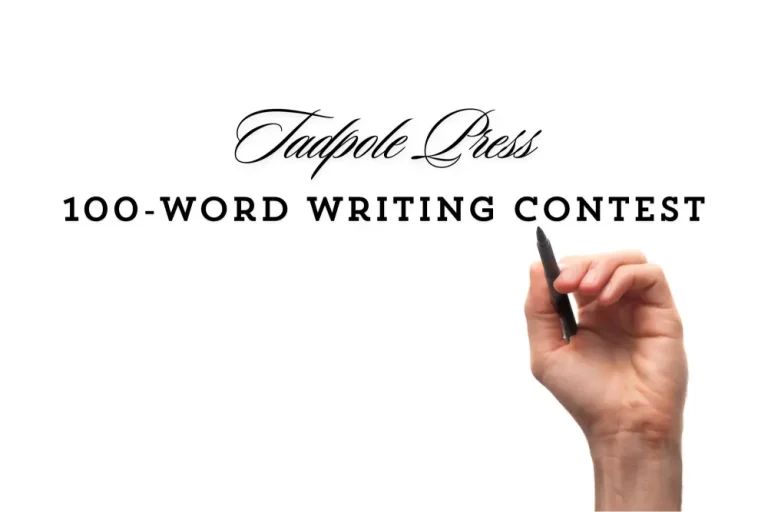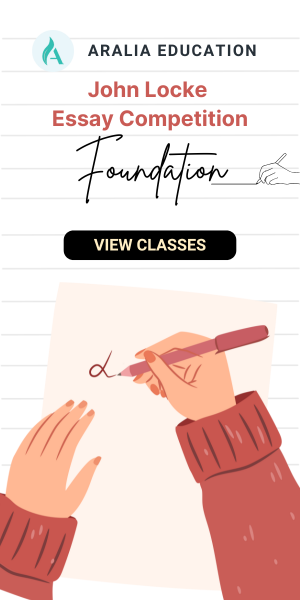New Topics, Extended Deadlines, and Key Changes from 2024
Unlock Your Writing Potential: Students in Our Writing Competition Preparation Class Are More Likely to Secure Awards
1. What is the John Locke Essay Competition?
The John Locke Essay Competition is organized by the John Locke Institute, an independent education organization located in Oxford, UK. Professors at the John Locke Institute are from famous universities like Oxford, Princeton, Brown, and Buckingham University.
The John Locke Institute encourages young people to cultivate characteristics of great writers: independent thought, depth of knowledge, clear reasoning, critical analysis, and persuasive style. Students are challenged to explore a wide range of questions beyond their school’s curriculum.
Obtaining prizes in the competition can greatly enhance the competitiveness of undergraduate applications at American, Canadian, and British universities. College admission for past winners include Princeton, Harvard, Yale, Stanford, Chicago, Oxford, Cambridge, University of Toronto, and other world-renowned schools.
2. When does the John Locke Essay Competition start?
The John Locke Essay Competition typically releases essay questions in February. Participants are given several months to submit their essays, with the submission deadline typically set for June 30 each year.
For 2025, the submission deadline is June 30, 2025.
- Registration opens on April 1, 2025.
- Registration deadline: May 31, 2025. (Registration is required by this date for subsequent submission.)
- Submission deadline: June 30, 2025.
- Late entry deadline: July 7, 2025 (25.00 GBP fee for the 7-day extension) or July 20, 2025 (75.00 GBP fee for the 21-day extension)
- Notification of short-listed essayists: July 31, 2025.
- Academic conference: October 3 – 5, 2025.
- Awards dinner: October 4, 2025
3. Who is eligible for the contest?
Students from any country are eligible to submit essays to the competition. However, only students whose 19th birthday falls after June 30 of the current year (which is the submission deadline). Candidates for the Junior Prize must be fourteen years old, or younger, on that date. For example, if the current deadline for the 2025 competition is June 30, 2025, only students who are 18 years old or younger before June 30, 2025 will be eligible for a prize or a commendation. In the case of the Junior Prize category, only students who are 14 years old or younger before June 30, 2025 will be eligible for a prize or a commendation.
4. Who should participate in the competition?
The competition welcomes students who are passionate about philosophy, politics, economics, history, psychology, theology, or law to participate. Regardless of your academic background or level of expertise, if you’re interested in writing and willing to delve deeper into thought-provoking topics and complex societal issues, the John Locke Essay Competition is an excellent opportunity for you.
5. Is the John Locke Competition free?
Yes, the John Locke Essay Competition is free to enter. Participants are not required to pay any fees, and they can submit as many essays as they please across any or all categories.
6. Is the John Locke Essay Competition prestigious?
The John Locke Essay Competition has always been a prestigious competition, attracting talented writers around the world. All of the competition’s essays are judged by a panel of senior academics drawn from leading universities, including the University of Oxford (#5 in Best Global Universities) and Princeton University (#1 in National Universities in the U.S).
In addition, the judges will choose their favorite essay from each of the seven subject categories, along with a junior category for under 15s, which is a very rigorous evaluation process.
Moreover, the essay topics chosen for the competition often tackle current issues and challenges facing society today, requiring students to be well-rounded and up to date with the topics that they’re interested in.
7. How competitive is the John Locke Essay Competition?
With approximately 19,000 entries in total, the John Locke Essay Competition attracts a pool of excellent participants from around the world. Each year, a select few—typically 24-25 individuals—are awarded prizes.
For more context, in 2021, the competition received 4,000 submissions, yet only 24 prizes were awarded, indicating a marked increase in competitiveness over time. With a win rate of approximately 0.6%, securing a prize in the John Locke Essay Competition is definitely an exceptional achievement. Notably, each category witnessed a substantial number of submissions, with Philosophy shortlisting 108 candidates, Politics 55, Economics 239, History 190, Junior Essay 93, Law 80, Theology 50, and Psychology 100. In total, these categories shortlisted 915 candidates, which is 23% of all submissions. Within 915 shortlists, there were only 24 students being awarded, representing 3% of all shortlists. This data paints a vivid picture of the competitiveness among participants, and the academic rigor demanded by the competition in order to be shortlisted and finally rewarded. In 2022, there were 6805 participants and 20% were shortlisted.
8. What are the categories in the competition?
Students are required to submit an argumentative essay of fewer than 2,000 words. The overarching themes of the competitions are: philosophy, politics, economics, history, psychology, theology, and law.
Philosophy
Q1. What moral obligations do we owe to living persons that we do not owe to future persons? What are the implications of your answer for policy-making?
Q2. Should we treat non-human animals well because they have rights, interests, neither, or both?
Q3. “When civilians are the main target, there’s no need to consider the cause. That’s terrorism; it’s evil.” Is this correct?
Expert Guide to the John Locke Essay Competition Philosophy Questions
Politics
Q1. Should politicians ever be punished for lying?
Q2. David Hume celebrated the wisdom of “unlettered men”. In a democracy, do the votes of the unlettered tend to protect a country against the bad ideas of the lettered or do the votes of the lettered tend to protect a country against the bad ideas of the unlettered?
Q3. Diversity is fashionable, but is it valuable?
Economics
Q1. What kinds of behaviour are engendered by the hope of profit? Is such behaviour better or worse, on balance, than the behaviour we should expect if all enterprises were owned by charities or governments?
Q2. What will be the effect on socio-economic mobility of the UK government’s plan to impose value added tax on school fees?
Q3. Should Oxford lower its admissions standards for the sons and daughters of generous benefactors?
Expert Guide to the John Locke Essay Competition Economics Questions
History
Q1. According to Bertrand Russell, “Hitler is an outcome of Rousseau; Roosevelt and Churchill of Locke.” To what extent was he correct?
Q2. Should anyone be ashamed of their nation’s history? Should anyone be proud of it?
Q3. Which figure in history did most to enlarge human freedom?
Expert Guide to the John Locke Essay Competition History Questions
Law
Q1. What injury should one person be permitted to inflict on another in the defence of private property?
Q2. “Use every man after his desert, and who should ’scape whipping?” Should the law treat offenders better than they deserve?
Q3. Is Vladimir Putin a war criminal?
Psychology
Q1. Is objectivity all in the mind?
Q2. Eleanor Roosevelt declared, “No one can make you feel inferior without your consent.” Is she right?
Q3. What is self-deceit?
Theology
Q1. Is atheism implausible?
Q2. Why would the creator of a trillion galaxies become angry if you have sex with your boyfriend or eat bacon for breakfast?
Q3. Why pray?
Expert Guide to the John Locke Essay Competition Theology Questions
78% of Aralia Students Win Prizes in the John Locke Essay Competition
JUNIOR prize (for age 14 and younger)
Q1. Your citizenship at birth was chosen for you. Which citizenship would you have chosen?
Q2. Do you benefit more from your own freedom of speech or from other people’s?
Q3. Who is more powerful – Donald Trump or Elon Musk?
Q4. Since 1920, twenty-one presidents and prime ministers from nine countries have been graduates of Philosophy, Politics & Economics (PPE) at Oxford. Would it have been better if they had studied history?
Q5. What is your fair share of what someone else has earned?
Q6. Why do you continue to use your smartphone more than is good for you?
Q7. Why do people become more boring as they grow up and grow older?
10. How to win the John Locke Essay competition?
With the competitiveness of this competition, it’s crucial for students to have a clear structure for approaching their question of choice. We will take an example from the grand prize-winning essay “Is tax theft?” by Hosai Kishida as an example to provide winning tips from Aralia teachers:
Analyze the question and link them to John Locke’s philosophy
Take the time to understand the essay prompt and what the question is asking for. Approaching the question “Is tax theft?”, some of the outstanding themes are the ethical implications of taxation and theft, the legal definition of theft within the context of taxation, and the redistribution of wealth and socioeconomic inequalities. Students could approach this question in several ways, but it should always link to John Locke’s philosophy. In their essay, Hosai linked the taxation issue with John Locke’s “Two Treatises on Government” idea of social contract.
Clear reasoning with evidence drawn from extensive research:
Once you decide on your stance about the question, it’s important to present your argument with logical reasoning and strong evidence from reputable sources. Students can utilize a variety of reputable sources, including academic journals, books, and scholarly articles, to gather relevant information and develop a well-informed argument. In addition, make sure that your structure and ideas are presented clearly and allow your reader to navigate your essay with ease.
For example, in Hosai’s essay, they laid out foundational principles of state power and the requirement of rational consent for legitimizing state authority. Then, they logically deduce that taxation, as an exercise of state power, necessitates the consent of taxed individuals to avoid being considered theft. The author supports their argument with references to Locke and Kant, renowned philosophers and scholars.
Engage in critical analysis
In addition to providing reasoning and evidence that support students’ arguments, students can also examine alternative perspectives to show that they have the ability to evaluate evidence critically– specifically the strengths and weaknesses of different viewpoints.
For example, Hosai evaluates opposing viewpoints and potential objections to their argument that taxation is theft. They brought up David Friedman’s concept of privatized approaches to order, and Michael Huemer’s critique of the state’s neutrality to provide a well-rounded analysis of the issue. They also reference historical events, such as the Holocaust under Nazi Germany, to illustrate potential abuses of state power.
Refine Your Writing Style
This type of essay falls under the argumentative essay type. This essay type requires a third person perspective throughout the introduction, body, and conclusion. Students should also use headings and transitions to create a smooth flow and overview of ideas without providing an excess of information, like how Hosai provides a heading for each of their arguments such as “Rational consent as a justification of state power” or “Taxation and hypothetical returns.” Don’t forget to use the active voice to make your writing more direct and engaging. Active voice sentences are clearer and more concise than passive voice, allowing you to communicate your ideas more effectively.
Proofreading and Editing
Before submitting your essay and throughout the writing process, always seek feedback from peers and teachers to gain valuable insights and perspectives on your essay to help you make revisions and create the best essay you possibly can.
11. How will your essay be evaluated?
According to the competition, your essay will be evaluated on 7 criteria, with the overarching goal of writing an essay that can change somebody’s mind in a way that’s as precise and direct as possible. Let’s go into detail about what those criteria are:
- Knowledge and Understanding of the Relevant Material: This criterion assesses students on their ability to understand the question and the relevant concepts and theories related to the topic.
- Competent Use of Evidence: The judges will evaluate the essay upon participants’ ability to use credible and relevant evidence to support their arguments.
- Quality of Argumentation: This criterion examines the quality and overall strength of the reasoning provided by the participant.
- Originality: In this criterion, the judges evaluate the originality of the ideas and arguments. In addition, all essays will be checked for the use of Artificial Intelligence. AI normally reiterates common knowledge and repeats well-established arguments without providing fresh ideas. If your essay is generated by AI, your essay will be disqualified.
- Structure: The judges will evaluate your essay based on how well you structure and organize the introduction, body paragraphs, and conclusion, as well as transitions between paragraphs.
- Writing Style: This criterion evaluates the participant’s writing style– from grammar, vocabulary, and sentence structure to the coherence and clarity of sentences.
- Persuasive Force: Persuasive force refers to the participant’s capability to persuade the audience of their arguments. Methods of persuasion can range from their use of persuasive techniques to emotional appeals, and more.
12. What abilities of students are examined through the John Locke Essay Competition?
- The foundational understanding of concepts and structures in philosophy, politics, economics, history, psychology, theology, or law
- The mastery of basic writing format and the skills to write argumentative essays
- The independent thinking, logical analysis methods, persuasive writing skills

13. What’s the general structure of the argumentative essay?
An argumentative essay is different compared to other types, because it requires a straightforward and easy-to-follow structure, with a clear point of view and reasoning. We will use an example of an essay from 2020 achieving the First Prize in the Junior Category from the John Locke Essay Competition. The prompt for that year was “Who should own your data? The companies with which you agree to share your data, everybody, just you, or nobody?” The link to the essay can be viewed here.
A good argumentative essay should follow this structure:
Introductory paragraph:
This paragraph should outline the topic of discussion with background information related to your argument.
Today, we produce unfathomable amounts of data, leading the OECD to call data a “key pillar of 21st-century growth.”[1] Legislators, politicians and the popular press have increasingly called for ownership of data.[2]
Outline the topic of discussion and background information. Here, the author explains the current state of data ownership.
Ownership is generally defined as “full and complete control with recognised legal rights,” with legal discretion for the rightsholder to exploit, change, destroy, possess, exclude others from and transfer their property.[3] An ownership right for personal data does not currently exist in the legal statutes of any industrialised country.[4] Property laws intentionally exclude personal data from subject matter definitions and newly introduced regulatory frameworks do not specify data ownership.[5] [6]
Define the subject matter at a high level. In this paragraph, the writer discusses the definition of ownership and the problem of data ownership not specified in the ownership regulation.
The thesis statement
This is where students should state their thesis, along with the evidence they will present. The thesis statement should be a concise summary of your main point and introduce the main arguments that will be discussed in the body paragraphs:
In 1893, Sir William Blackstone noted the human fascination with ownership, saying we desire “sole and despotic dominion … in total exclusion of rights of other individuals in the universe.”[7] In this case, that fascination detracts from the problems and solutions surrounding personal data today. An ownership right should not be created for data. To illustrate this, I shall explore the implications of assigning a data ownership right to corporations, everybody, individuals and then discuss why data should not be owned at all.
State your perspective on the matter and provide an overview of your evidence for the argument. In responding to who should own the data, the writer stated that data should not be owned by corporations, individuals, and everybody, which he discusses later in the body paragraph.
Body paragraph:
A body paragraph explains the main reasons for your thesis. If you have three main points you want to discuss, each body paragraph should cover each one (and only one) idea. You can support your claims with examples, research, studies, statistics, and any other information to add credibility and gain trust from readers. In the body paragraphs, you can also bring up opposing claims and provide explanations for why you disagree with the claims. The overall idea of the argument is to convey your idea, explain why the reader should agree, and present opposing claims with evidence-based arguments.
In the winner’s essay, he provided four main arguments why data should not be owned by corporations, individuals, and everybody, as well as why data should be owned by nobody. He also discussed the consequences of data ownership by these groups.
Conclusion
The conclusion should summarize your arguments and restate your thesis. A good conclusion also expands the reach of the paper to include themselves and their audience, making it both personal and showing why their audience should care about the implications of their argument. An example of making your conclusion personal is including an anecdote or a personal story related to the topic.
Today, policy makers must strike a balance between individual rights and extracting societal benefits of data. It is the subject of age-old philosophical debate; whether to prioritise a categorical imperative of privacy at the expense of utilitarian societal progress. Assigning data ownership to a single party means choosing a side, one side will inevitably lose out – sacrificing progress or privacy. Thankfully, reality does not reflect this simplistic trade-off. Ergo, legislators must continue to push for a sector-specific rights-based regulatory framework to complement existing efforts and forgo the need to legislate through assigning data ownership. Therefore, I believe, data should remain as is, res nullius – “property of no one.”
This is an example of a great conclusion, as the writer restates what would happen if you provide data ownership to people, and restates his original thesis that data should not be owned by anyone.
14. What are the prizes of the John Locke Essay Competition?
- The prize for each winner of a subject category will receive a scholarship worth $5000 (US Dollars) towards the cost of attending any John Locke Institute program
- Second place winner: a scholarship worth $2000 (US Dollars)
- Third place winner: a scholarship worth $1000 (US Dollars)
- The best essay overall will receive a $10,000 (US Dollar) scholarship to attend one or more of our summer schools and/or visiting scholars programmes.
- The essays will be published on the Institute’s website.
- Networking opportunities with judges and other faculty members of the John Locke Institute.
What's next
How can I improve my writing? 20 Tips to Improve Your Writing
Interested in participating in High School Writing Competitions? There are 27 Writing Competitions for High School Students in 2021!
How can I stand out in writing competitions? The only 5 tips you need to know is here: 5 Tips to Stand Out in a Writing Competition
Finished your writing work but not sure where to submit it? Where to Submit Your Writing Works: 5 Main Platforms will answer your questions














